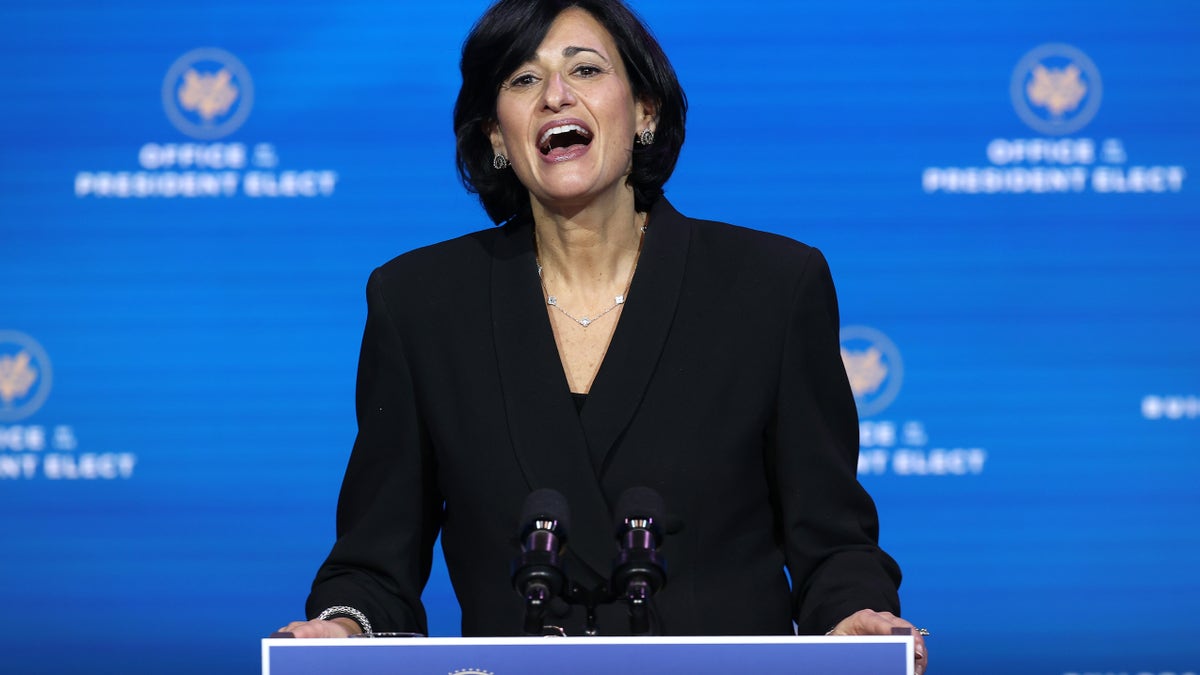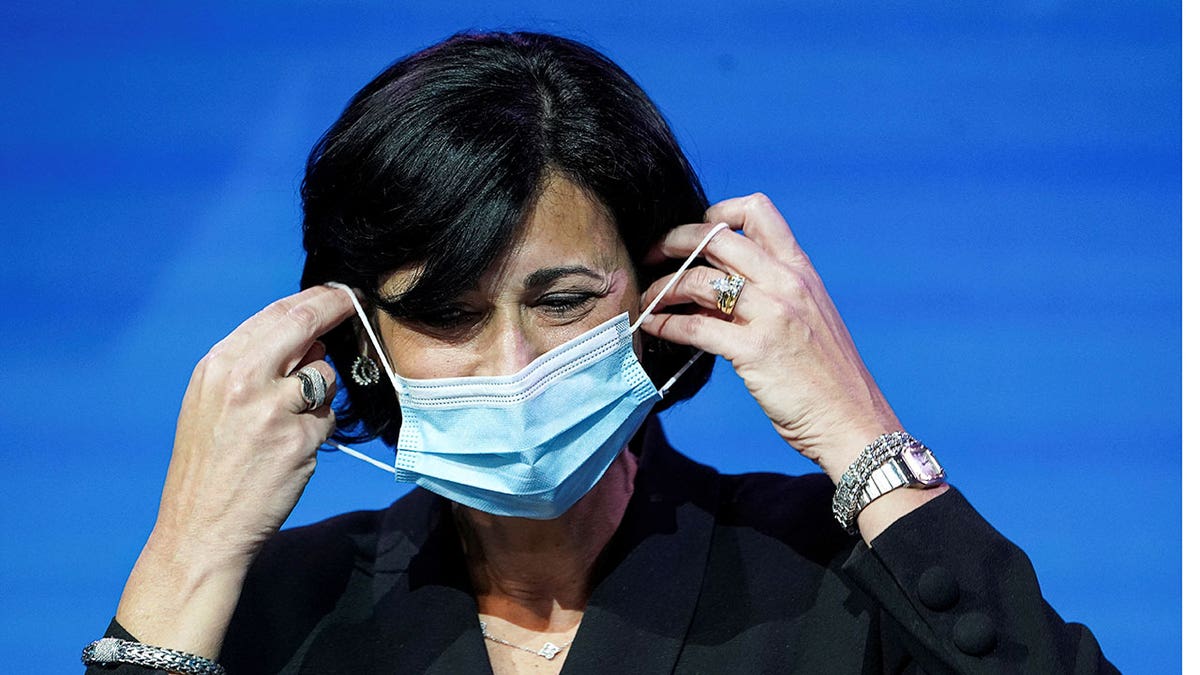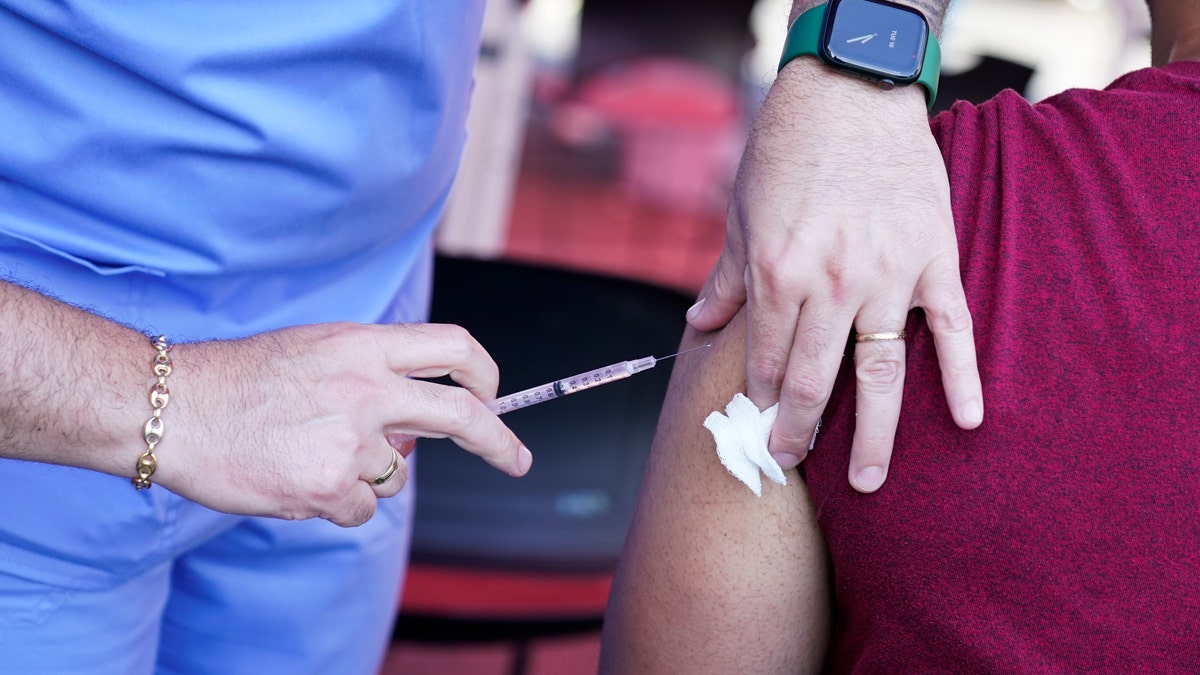Rochelle Walensky acknowledges CDC's COVID-19 shortcomings
Fox News medical contributor Dr. Marc Siegel details his interview with CDC director Rochelle Walensky on 'America Reports.'
Dr. Rochelle Walensky, the director of the Centers for Disease Control and Prevention, shared how "frustrating" it is when health decisions are politically driven.
"It's frustrating when people are making health based decisions through a political lens." Walensky told Fox News' Dr. Marc Siegel. "We've done everything that we can, and I continue to put my head down to steer the ship to steer. What I believe with science is the foundation science leading the way. Our policies are driven by science and they, of course, have to be interpreted in the context of all of health, [for] all of all of society."

Dr. Rochelle Walensky, President Joe Biden’s pick to head the Centers for Disease Control, speaks during a news conference at the Queen Theater. (Chip Somodevilla/Getty Images)
From the beginning, the CDC has floundered with messaging about the virus and has been up against vocal and influential politicians from both parties.
Walensky shared her desire in the future to be consistent, truthful and transparent in the face of political pressure and public health crises.
"We need to show our work. We need to inform policymakers. We need to update things along the way as we proceed to that finish line. We need practical, timely recommendations that take early peeks of the data and adjust along the way."
FED-UP PHILADELPHIA MOM TO SUE SCHOOL DISTRICT AS MASK MANDATE REMAINS IN PLACE
Throughout COVID-19, a culture war erupted with many calling into question the CDC's efforts to mitigate the spread of the virus as well as its insistence on vaccine mandates, asserting that such public health measures intrude on individual rights.
"What this pandemic taught us and showed us is that now we need to talk to the American people. We need to say what we know when we know and provide timely data and give people updates along the way. And yes, that also means telling people what we don't know as we're making decisions." Walensky admitted.

Dr. Rochelle Walensky, now director of the U.S. Centers for Disease Control and Prevention (CDC), removes her mask to speak. (REUTERS/Kevin Lamarque)
The CDC has also faced backlash over the effectiveness of vaccines against the virus.
"When delta came along, we saw that they were working less well against infection. But what I will say, and similarly with omicron, is that they continue to show durable effect in preventing severe disease and death" Walensky said. "That's where we are right now. And, of course, data forthcoming on what will happen with our new booster's in the fall."
At the beginning of August, the CDC shifted its approach and eased COVID-19 guidelines, including not recommending masks unless testing positive for the virus or living in areas that have high rates of COVID-19 infection or hospitalization.
"Masks have been a challenging message. What I will say is we have seen time and time again, data after data that demonstrate that masks have decreased infection and that they work to decrease infection, especially higher quality masks." Walensky said.

A nurse administers a monkeypox vaccine at a walk-in clinic at the North Jersey Community Research Initiative in Newark, N.J. (AP Photo/Seth Wenig, File)
In May, the monkeypox virus first appeared in the United States and the CDC began to navigate the new outbreak's effect.
The CDC moved more nimbly in response compared to its response to COVID-19, with the agency quick to publish online details about monkeypox to aid in the public's understanding on the virus.
CLICK HERE TO GET THE FOX NEWS APP
"One of the things that we did with monkeypox, we put our testing, our details on testing online immediately because we had those tests available within a week of that first case in Massachusetts."




















